Why Being a Cited SEO Authority Matters More Than Ever in 2025
In 2025, becoming a cited SEO authority is no longer a luxury—it’s the apex of digital relevance. Brands and voices that cement their stance as SEO experts in 2025 are not merely ranked—they’re revered. The digital skyline now favours those who craft SEO credibility 2025 with substance, not superficiality.
It’s not just about getting your website high up in search results anymore; it’s about being so good and trusted that other important websites and even Google itself (and its AI) refer to your content as the go-to source.
The old way of having links or basic content won’t cut it. Now, Google cares about whether you have experience and expertise, are an authority, and are trustworthy (called “E-E-A-T”). These aren’t just things you can pretend to have; you need to be them.
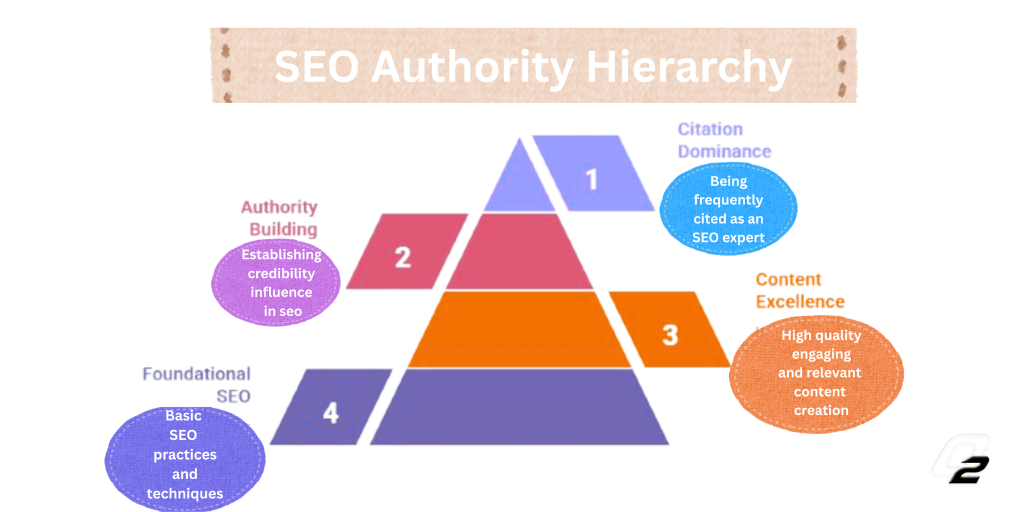
The calculus of E-E-A-T SEO has evolved into a complex framework where experience, expertise, authoritativeness, and trust are no longer boxes to tick but essence to embody. To build SEO authority, one must sculpt content with sharp precision and back it with constant topical immersion.
Navigating the future of SEO authority calls for more than trend-chasing. With AI in SEO authority disrupting stale playbooks, only those who become cited authority SEO through originality, depth, and a mastery of topical authority SEO shall command the stage.
To become a top SEO expert, you have to create really good, detailed content that shows you know your stuff about a specific topic inside and out.
Example:
Imagine you want to be the top expert on “Sustainable Home Gardening in Urban Areas.”
- The old way (not cited authority): You have a blog with generic tips like “water your plants.” You might get some traffic, but no one points to you as the source.
- New way (cited authority in 2025): You write a highly detailed article about “Advanced Vertical Farming Techniques for Small Balconies” based on your experiments and results (demonstrating experience and expertise).
- You publish original research on the best drought-resistant plants for city dwellers, which other gardening blogs and even a local news channel’s website link to and quote (demonstrating authoritativeness by being “cited”).
- You consistently provide accurate, well-researched information, and your website is secure and transparent about its sources (demonstrating trustworthiness).
- You will become known as the go-to person for sustainable urban gardening. Even if someone asks Google’s AI, “How can I grow vegetables on my tiny apartment balcony sustainably?” Your content is likely to be a primary source it pulls from.
In short, it’s about becoming so good and reliable in your specific area of SEO that others (including Google’s AI) cannot help but acknowledge you and point to you as the definitive source.
Let’s know the Pillars of SEO Authority: Beyond Backlinks.
True SEO authority goes far beyond just gathering backlinks. A strong SEO strategy combines smart content marketing, clear brand building, and steady online reputation management. Today, it’s about offering helpful, trustworthy content that makes your content unique and sets you apart in the ladder of success. Being seen as an expert makes your website more valuable in the eyes of search engines.
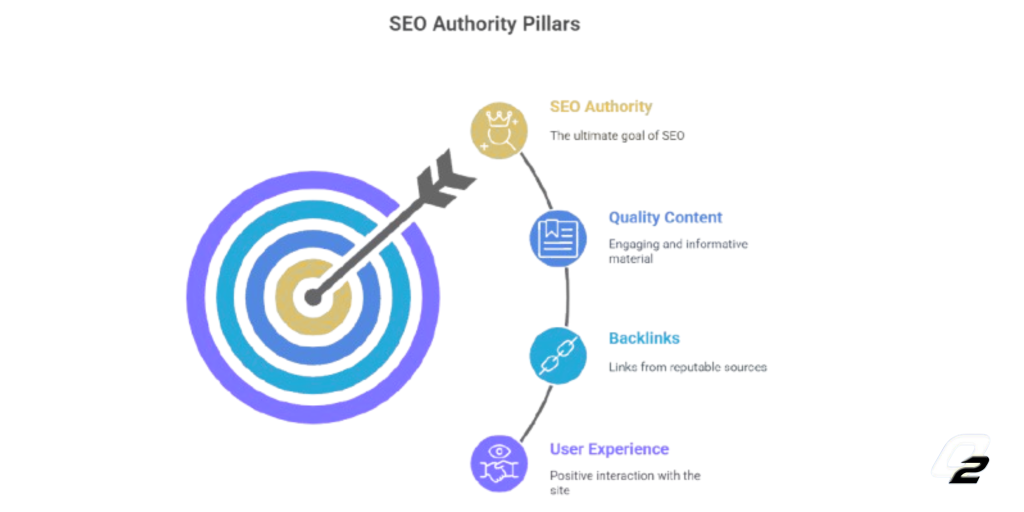
While a good backlink profile still matters, search engines also look at Domain Authority (DA) and Domain Rating (DR) to measure your credibility. But to rank higher, you need a smooth user experience (UX), solid technical SEO foundations, and an error-free structure. Tools like Google Search Console help you track site health and fix issues that could hurt visibility.
Lastly, top SEO minds use data-driven SEO and real-time insights from analytics for SEO to guide decisions. These tools show what’s working and what needs change. In digital marketing, becoming a trusted voice takes time, clear strategy, and consistent effort. Authority isn’t bought—it’s earned with value and trust.
The E-E-A-T Framework in Detail: Your Blueprint for Credibility
E-E-A-T stands for Experience, Expertise, Authoritativeness, and Trustworthiness. These are key principles Google uses to assess your site’s quality.
If you’re writing health content, readers want to know you’re qualified. Add author bios, cite credible sources, and update content regularly. This helps meet Google SEO best practices. For example, a financial blog with advice written by certified professionals will rank better than anonymous sources.

E-E-A-T strongly emphasizes content created by individuals with significant real-world experience in a specific field.
For instance, a blog written by someone with direct medical experience and expertise will naturally possess authority in the medical field. Because the content is relevant and backed by genuine expertise, search engines are more likely to recognize its trustworthiness and value it accordingly.
Building Foundational Authority: Niche Selection and Topical Depth
Selecting the right niche is the first step to building true SEO authority. A focused area helps search engines; users see your site as a trusted source. Instead of covering broad topics, go deeper into one specific field. This approach makes it easier to rank and gain a loyal audience.
Your SEO strategy should begin with understanding your niche and your audience’s wants. Once the niche is clear, aim for topical depth. Cover your chosen subject from every angle with useful, well-researched content. This helps boost topical authority SEO and shows Google that your site is a go-to resource.
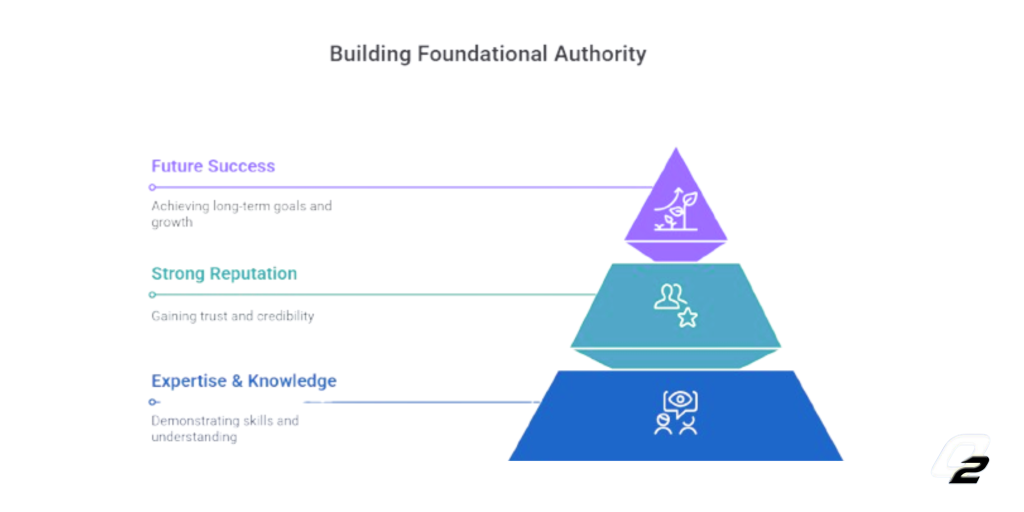
The more in-depth and helpful your content, the more it supports brand building and trust. Pairing this depth with smart content marketing and solid technical SEO foundations helps build long-term authority.
Use tools like Google Search Console to track growth and improve where needed. This thoughtful, focused method works better than trying everything simultaneously. Building authority takes time, but clear focus and depth make it easier.
Content That Commands Citation: From Research to Publication
Creating content that earns citations starts with solid research and a clear SEO strategy. Your content should solve problems, offer useful insights, and reflect expertise.
This makes it valuable not just for readers but also for other websites looking to link credible sources. Strong content supports your brand-building goals. Using content marketing within a wider digital marketing plan helps more people discover your work.
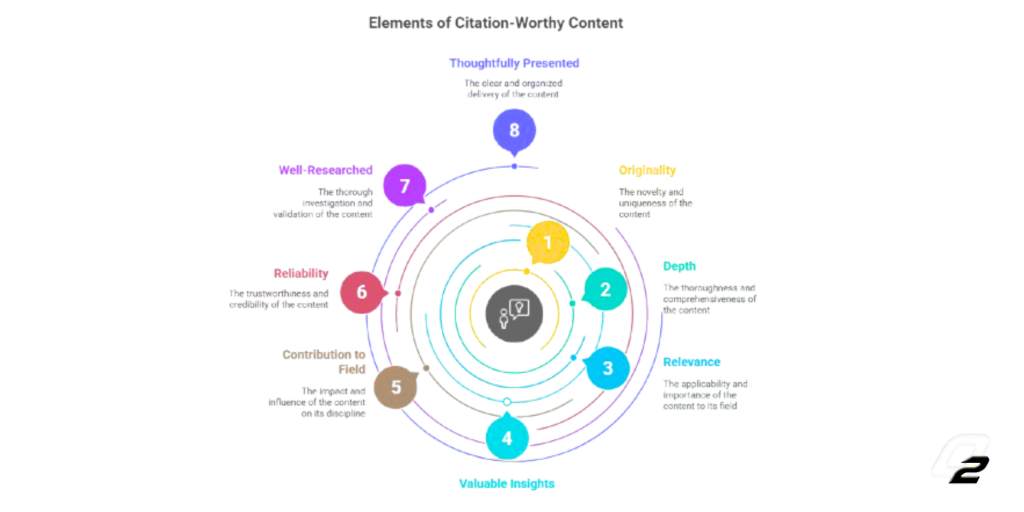
Proper technical SEO foundations, fast loading speeds, and a great user experience (UX) make your content more shareable. When others reference your content, it boosts your backlink profile, increasing your Domain Authority (DA) and Domain Rating (DR).
This builds trust and moves you closer to thought leader positioning. Pair this with consistent online reputation management and data-driven SEO to keep growing your authority in search results.
Securing Quality Referrals: How to Get Noticed by Key Authorities
Links from trusted sites are key to being acknowledged by SEO experts by 2025. Rather than chasing links, focus on creating valuable content that naturally attracts authoritative mentions. Share insights, case studies, and real data—these build trust and show expertise in SEO. I personally ask you to share your opinion with the latest stats.
This method aligns with E-E-A-T, which values experience, authority, and trust. Content marketing for SEO thought leadership plays a big role. Publish deep, helpful content that positions you as a go-to voice. This helps Google get cited by AI overviews and other smart platforms.
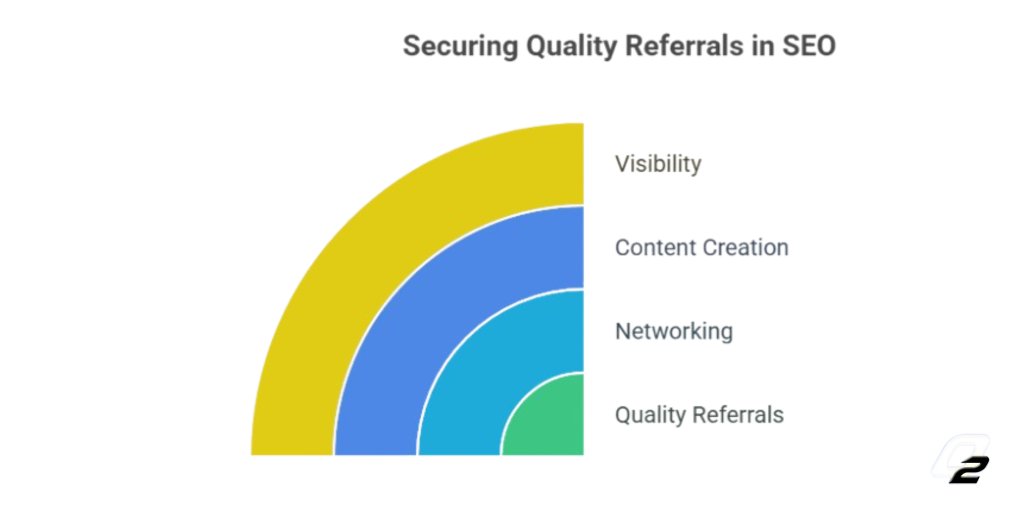
With future-proof SEO strategies, your work stays relevant, even as search evolves. As generative AI reshapes search, credibility becomes even more important.
To build strong trust signals, focus on clear authorship, solid facts, and consistent value. These are actionable steps to become an SEO authority. AI now rewards depth and trust, not tricks—so your long-term game should be quality, not shortcuts.
The Future of Authority: Sustaining Your Influence Beyond 2025
To stay relevant beyond 2025, your SEO influence must be built on trust, originality, and depth. Focus on expert content creation and original research SEO to keep offering value. Search engines now reward real expertise and website trustworthiness, not just keyword tricks.
That’s how you build long-lasting authority. Use Digital PR for SEO and smart brand mentions SEO to gain recognition without relying only on links. These strategies help with link-building for authority and increase your online visibility.
Real authority comes when others mention you as a trusted source across platforms. As search shifts toward AI, knowing how to rank in AI Overviews and aligning with Google’s Helpful Content System is vital.
hare insights that reflect true thought leadership SEO and maintain strong credibility in search engines. Sustained influence depends on being helpful, consistent, and ahead of the curve in your niche.
Conclusion:
Real SEO authentication in the years ahead isn’t built overnight. It grows through steady effort, honest content, and building trust with people and search engines. Your site becomes a trusted source by focusing on clear, useful writing and sharing knowledge that matters. Using smart tactics like Digital PR, gaining brand mentions, and creating content that shows real skill will help your name stand out. As search tools grow smarter, staying true to your voice and offering real value keeps your influence strong—not just in 2025 but well into the future.